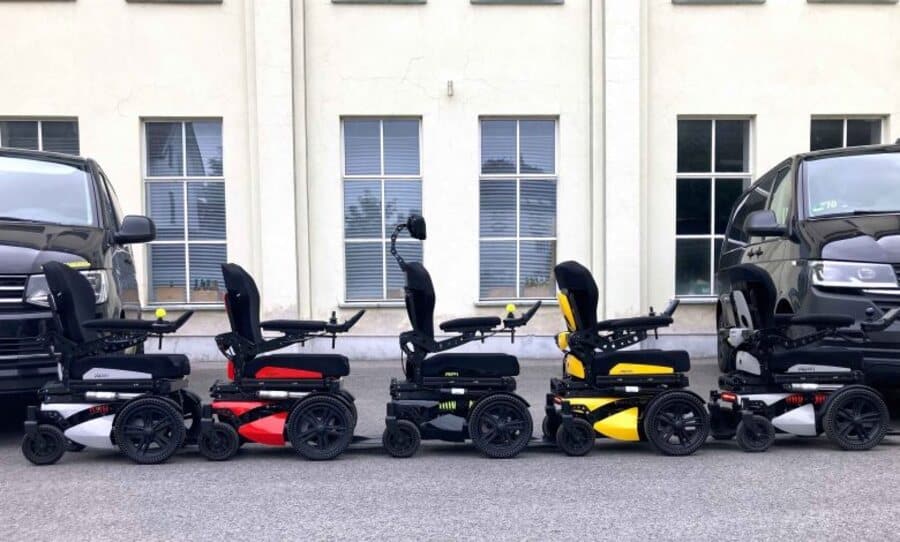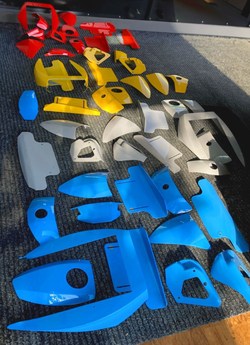Replique and RehaMedPower team up to create customised wheelchairs through HP’s 3D printing tech

3D printing technology enables a more flexible way to design wheelchairs, states German firm Replique, so that they can be adapted to suit individual patient requirements.
Replique’s mission to empower a seamless shift to decentralised manufacturing with ease and confidence was a key driver in its work with RehaMedPower, a German medical supplier which specialises in wheelchairs.
When RehaMedPower was preparing to develop a new electric wheelchair, the RP1, it struggled to find a cost-effective solution for part production, with traditional manufacturing methods requiring high initial investment costs and expensive molds as well as an increase in prototyping and product-market time.
Using HP’s Multi Jet Fusion (MJF) technology, Replique partnered with RehaMedPower to explore additive manufacturing (AM) for wheelchair design from prototyping to serial production.
Together, RehaMedPower and Replique identified many more parts than initially planned that could be manufactured in PA12 (Polyamide 12) using 3D printing, taking advantage of the technology’s greater flexibility in early production stages and cost-convenience compared to traditional manufacturing methods.
Between 19 and 23 individual parts are 3D printed for each wheelchair, depending on the specific customer or patient purchase.
In addition to the significant costs saved from bypassing injection mold production, costs were further reduced thanks to the digital storage of design files through Replique’s digital warehousing platform, enabling a faster go-to-market strategy and keeping RehaMedPower’s working capital low.
RehaMedPower states that it has seen a 30 per cent reduction in development time and 60 per cent reduction in prototyping costs compared to injection molding, but the real winners, it states, are the customers and patients benefiting from more personalised care.
With RehaMedPower’s RP1 wheelchair, patients were able to customise and tailor various parts to their needs and lifestyles as well as choose from a wide colour range.
Going forward, RehaMedPower states that it plans to build on this momentum by incorporating more AM designs in the RP1 wheelchair and developing new products that further advance its innovative line of accessibility solutions.
Fast spare part availability will also soon be offered during the use phase via Replique’s global production network, bringing on-demand production of spare parts to patients and customers whenever and wherever they need them.
Mark Winker, Technical Sales Manager at Replique, commented: “Our collaboration with RehaMedPower shows, that 3D printing offers so much more than just efficient prototyping.
“It enables companies to deliver highly customer-centric solutions while remaining cost-effective and flexible in serial production thanks to our digital warehouse solution. We are looking forward to simplifying the life of RehaMedPower and most importantly, their valued patients.”
Thyl Junker, Head of Development at RehaMedPower, added: “With 3D-printed prototypes we were able to reduce our development time significantly.
“When it comes to serial production in our industry, teaming up with Replique also offers some crucial benefits, such as flexibility in demand planning with production on-demand and the ability to implement changes rapidly and offer special parts to meet the individual needs.”



